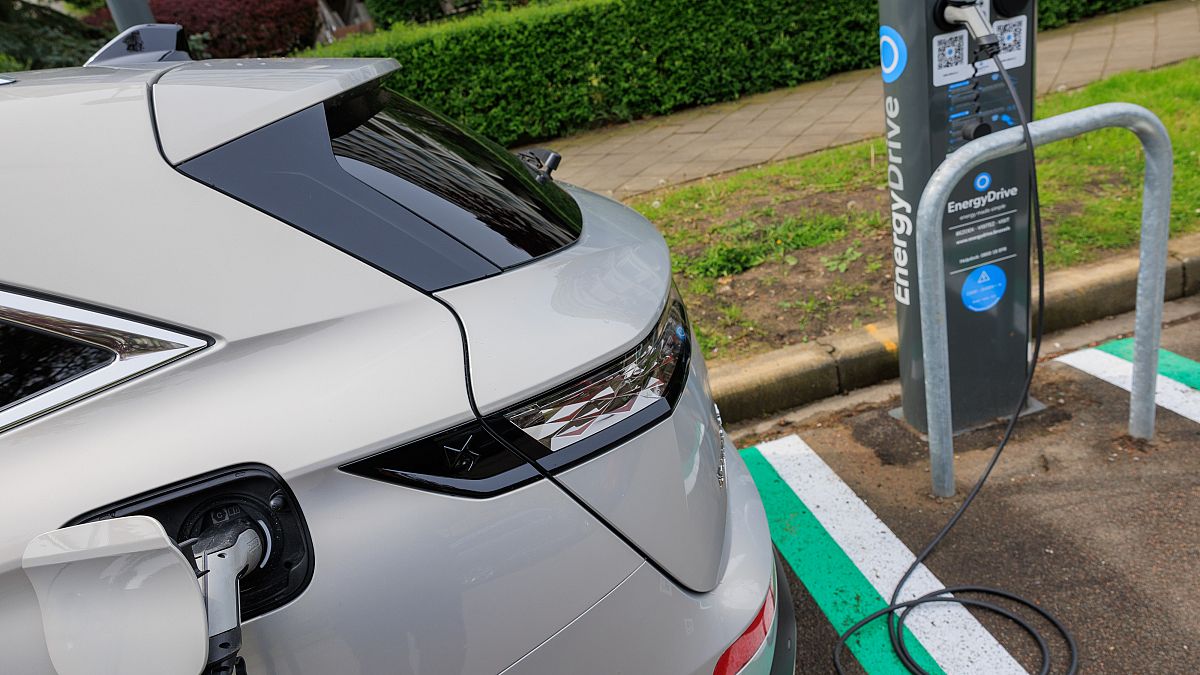Germany’s auto industry prepares for job losses in electric transition

Volkswagen is closing three plants in Germany, and Audi is halting production in Belgium, sparking fears of a crisis in Europe’s car industry. However, some see it as part of a necessary transition.
Germany’s auto industry is preparing for a big shift in employment as it transitions toward electric vehicles (EVs).
A recent study estimates that 186,000 jobs could be lost over the next decade as the industry switches to EV production, which requires fewer employees than traditional car manufacturing. Of those potential losses, 46,000 jobs have already disappeared.
However, some industry experts see this as an opportunity for new job creation — if the sector can boost its competitiveness. “The attractiveness of locations for new investments and job creation will be decisive in the future,” said Simon Schuetz, spokesperson for the German Association of the Automotive Industry (VDA).
He explained that with digital technologies and electric mobility on the rise, many new jobs will emerge, but warned that Germany and Europe must improve their competitive edge to attract these investments.
One significant factor impacting the industry is Europe’s high energy costs, which German carmakers say are four times higher than in China and the United States. The VDA has also voiced concerns over the new EU tariffs on Chinese-made electric cars, suggesting they could drive up prices and potentially spark trade tensions.
The NGO Clean Transport sees the tariffs as beneficial in the short term, giving the EU auto sector some breathing space during the transition. “The tariffs don’t completely change the dynamic,” said Julia Poliscanova, director for electric vehicles and e-mobility at Transport and Environment.
She said that while initial price increases or limited vehicle availability could be expected, the tariffs might encourage Chinese manufacturers to set up production facilities in Europe, which could support local industry.
“Chinese carmakers have comfortable profit margins, so this shift could actually stabilise prices over time,” she added.
Clean Transport says the new tariffs will give the sector breathing space during the transition period.
Poliscanova anticipates that Europe’s EV sales will stagnate this year, as manufacturers focus on profit margins. But she predicts growth will resume next year as regulatory measures hold firm. “We’re on track to meet our climate targets, provided regulators don’t weaken CO2 standards for vehicles,” she said.
As the industry shifts, EU policymakers and the European Commission face pressure to simplify the regulatory landscape to support green industry.
Encouraging the public to adopt greener vehicles quickly will also be key. New car sales in Europe fell by 18.3% in August compared to last year, with electric vehicle sales remaining static in the region while seeing gains worldwide.
Related
ForexLive European FX news wrap: Euro stays buoyed, markets wait…
Headlines:Markets:EUR leads, AUD lags on the dayEuropean equities lower; S&P 500 futures up 0.1%US 10-year yields down 2.7 bps to 4.255%Gold up 0.4% to $2,9
European shares fall as tariff uncertainties weigh; US jobs data…
(Reuters) - European shares fell on Friday as frequent shifts in U.S. trade policy throughout the week resulted in risk aversion, while focus remained on th
US economy added 151,000 new jobs in February; Euro on…
US jobs report releasedNEWSFLASH: Hiring across the US economy picked up slightly at the start of Donald Trump’s second term in office.The US economy added 15












